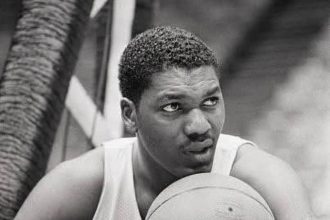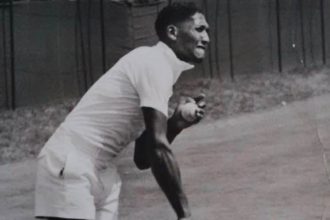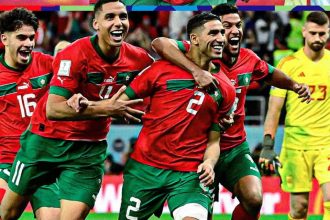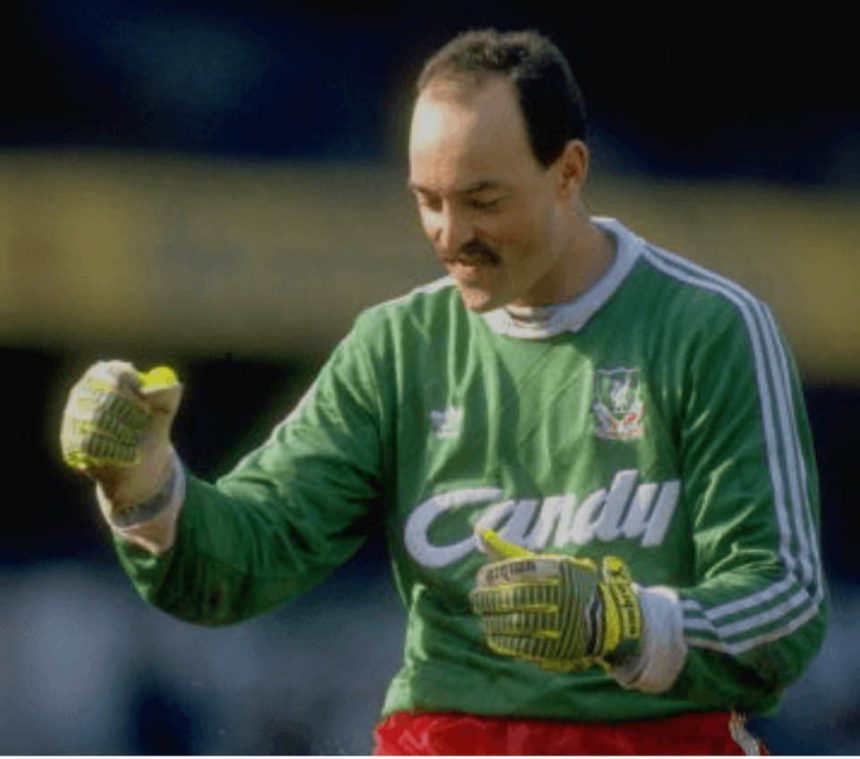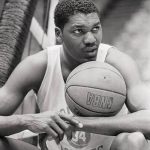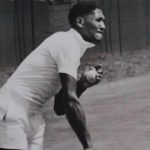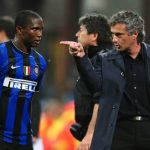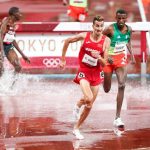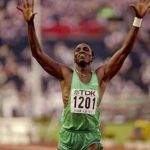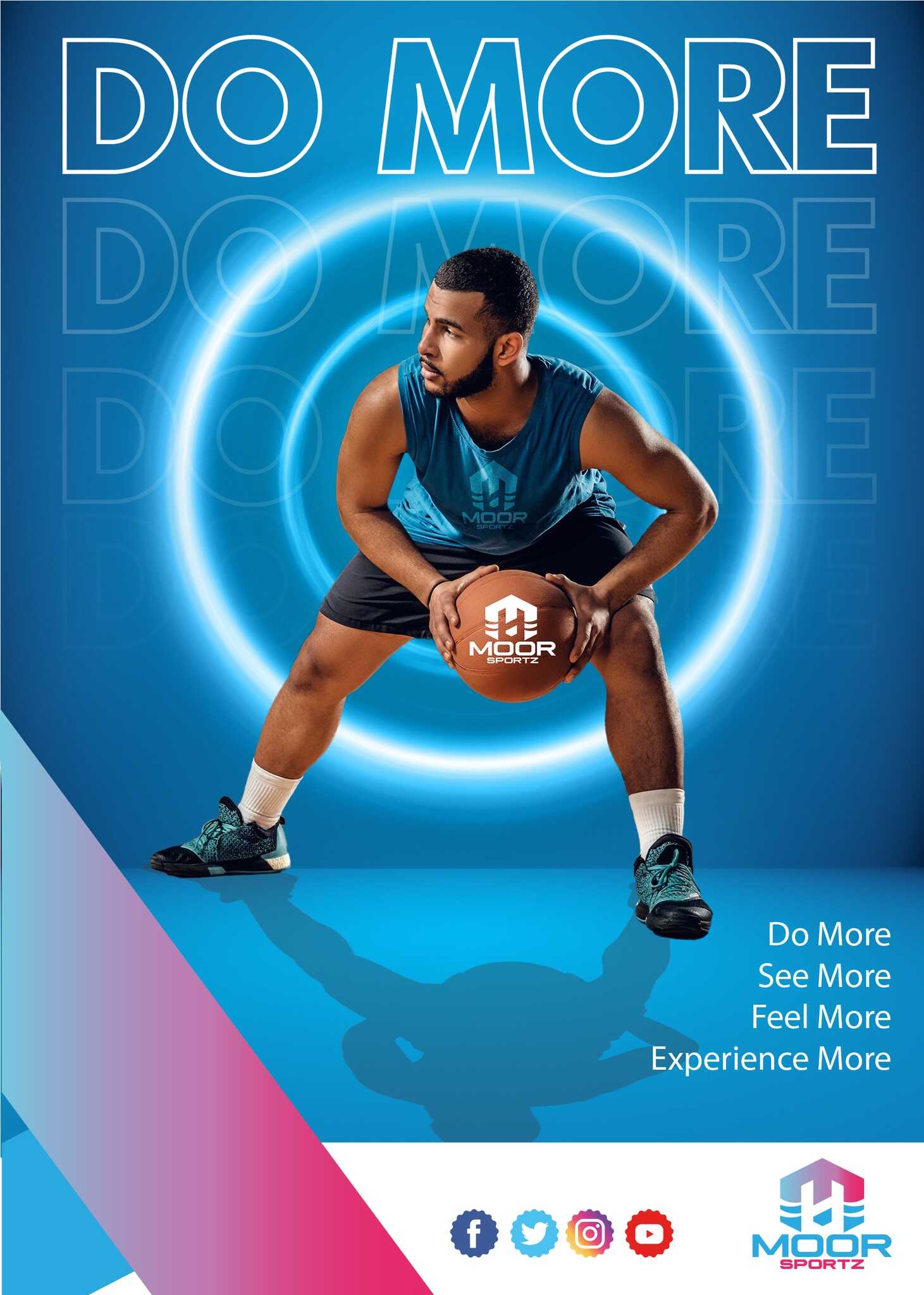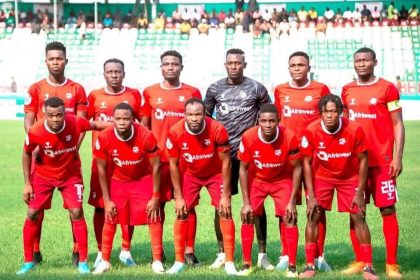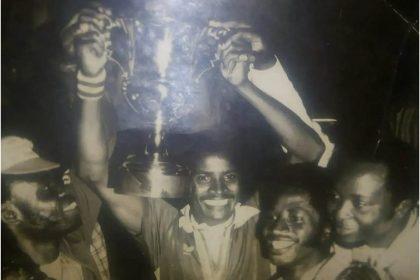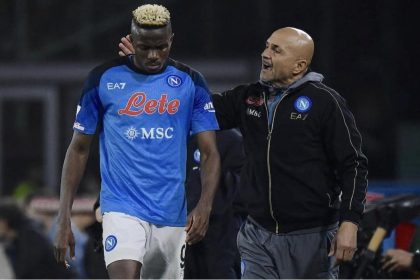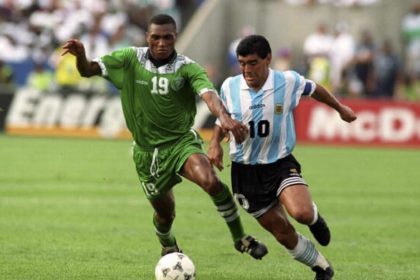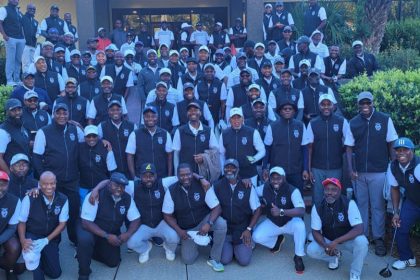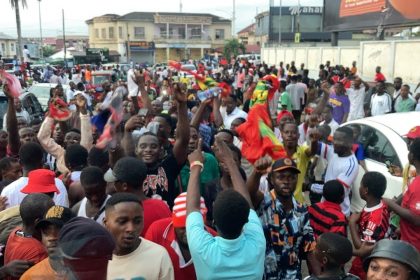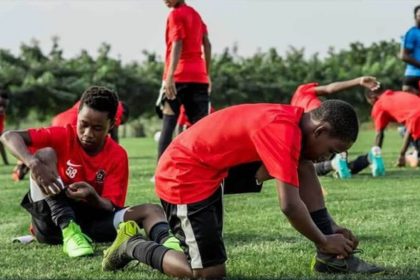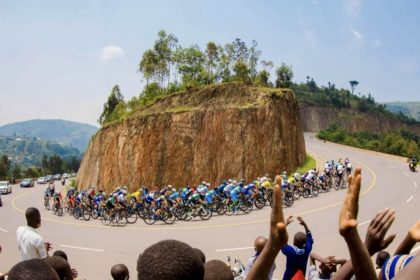One of the most heated debate among sports’ historians globally is the claim on Peter Ndlovu having been the first African player to feature in the English premier league. The argument will continue to prop up and we are here again on the burning issue.
In 2018, an account, @ksegrp, asked;
“Why do you deem Coventry City Zimbababwean Peter Ndlovu the first African to play in EPL in 92 when Bruce Grobbelaar a fellow Zimbabwean international was on Liverpool books?”,
Good question, isn’t?.
How the name of Peter Ndlovu came into this controversial argument is most likely because on 15 August 1992, which was the match-day one of the inaugural premier league season both Coventry and Liverpool played that weekend. However, both Peter and Bruce were away on international duty for their country Zimbabwe. On 19 August 1992, Coventry City played against Tottenham, Peter Ndlovu featured for Coventry City in this match coming off the bench in the last 20 minutes of the game. Grobbelaar on the other hand was on the bench for Liverpool against Sheffield United that same day but didn’t have any minutes of play on the pitch.
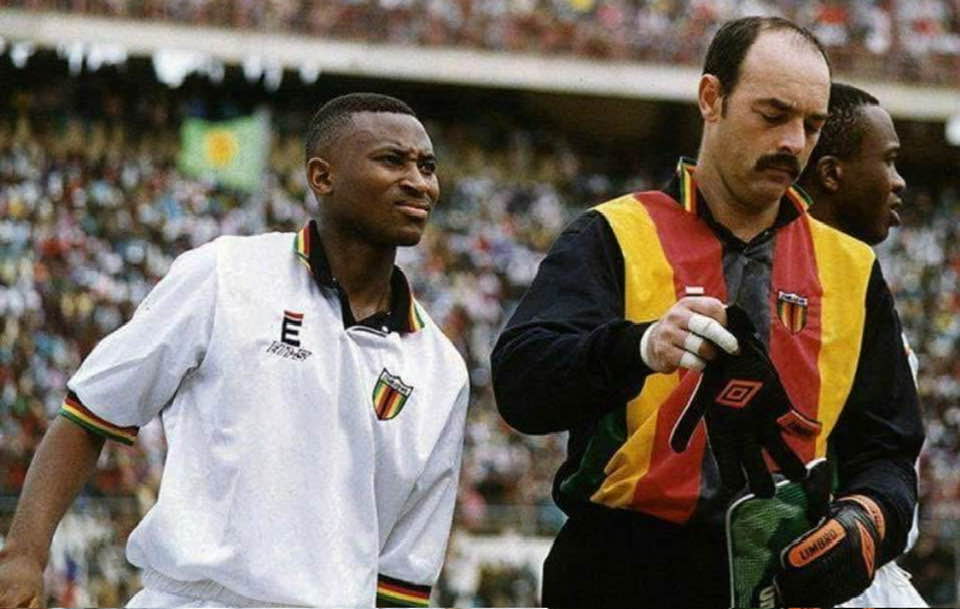
Could this be the source of the claim of Ndlovu being the Africa’s trailblazer in the English premier league?,
While it is true that Peter Ndlovu was the first African to have a playing time in the modern EPL, the whole story is a bit more complex and the ambiguity demands the claim on Ndlovu to be better rephrased.
The third African player in that inaugural EPL season is Nigeria’s Efan Ekoku. Born and raised in Manchester but switched allegiance to his ancestral homeland, Nigeria. Why Ekoku’s case is always at the back burner of the debate is most probably because he was born in Europe unlike Peter Ndlovu who was born in Bulawayo, Zimbabwe and played for Highlanders until he left for England to join Coventry City Football Club in 1991 and Bruce Grobbelaar who was born in Durban, South Africa before his family moved to Zimbabwe (then Rhodesia) when he was a tender 2-months old baby from where he got his break with Highlanders FC of Bulawayo and later Durban City Football Club in South Africa, from where he was signed by the Canadian club Vancouver Whitecaps of the NASL in 1979 after he had attended their scouting camp in South Africa and by providence he later joined Liverpool in 1981. Be that as it may, Ekoku didn’t play on that match-day one of this same season for his club Norwich City like Bruce too. What is however cemented in history is that out of the 49 players from 25 countries outside of The United Kingdom who played in the inaugural English premier league season of 1992-93 these 3 were the only footballers of African heritage.
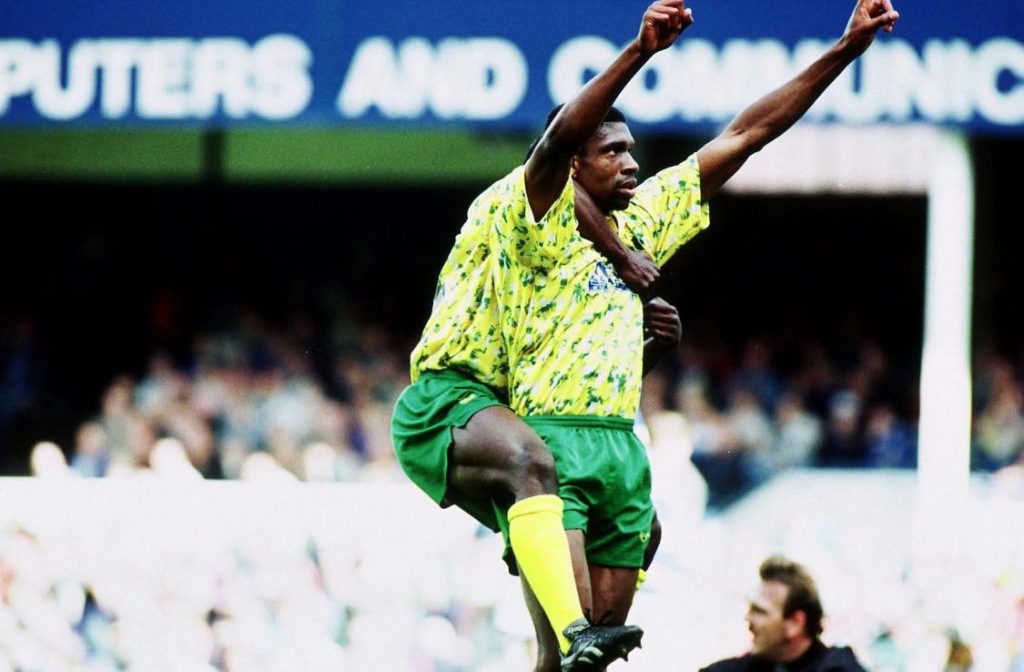
USA ‘94 World Cup qualifier Africa zone was one of the most bitterly contested FIFA qualifying series on earth, the 3 slots available for grabs by the 49-strong confederations affiliated to CAF went to the wire with Zimbabwe narrowly missing out in the 3-team final rounds to Cameroon. This was after the “Dream Team” (as the that Zimbabwe’s golden generation was branded by fans across the world) already eliminated a star-studded Egyptian side through pulsating penalty shootouts, an Egyptian Pharaoh’s generation complete with big names like Hossam Hassan, Hany Ramzy, Abdelghani and many others. The FIFA rescheduled match was set to a neutral ground in Stade de Gerland, Lyon in France on 15 April 1993 because a crowd-induced brawl in Cairo in the final match of the first round group between Egypt and Zimbabwe has caused FIFA to annulled the result of the Cairo match hence the replay in Lyon. Liverpool’s Bruce Grobbelaar led the “Dream Team” to a resolute victory with his daring saves in the goalpost.
This Bruce Grobbelaar-inspired star-studded Dream Team is arguably the best in the history of Zimbabwean’s international football till date. The team had within it world beaters like English premier league Coventry City’s Peter Ndlovu, FC Lucerne of Switzerland’s prolific striker, Agent Sawu, Norman Mpensa and the mercurial Adam Ndlovu among others.
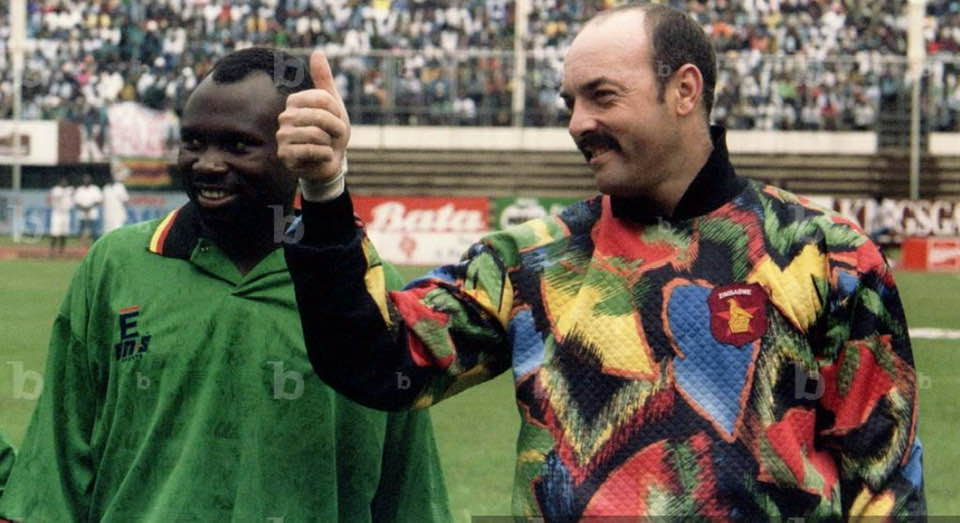
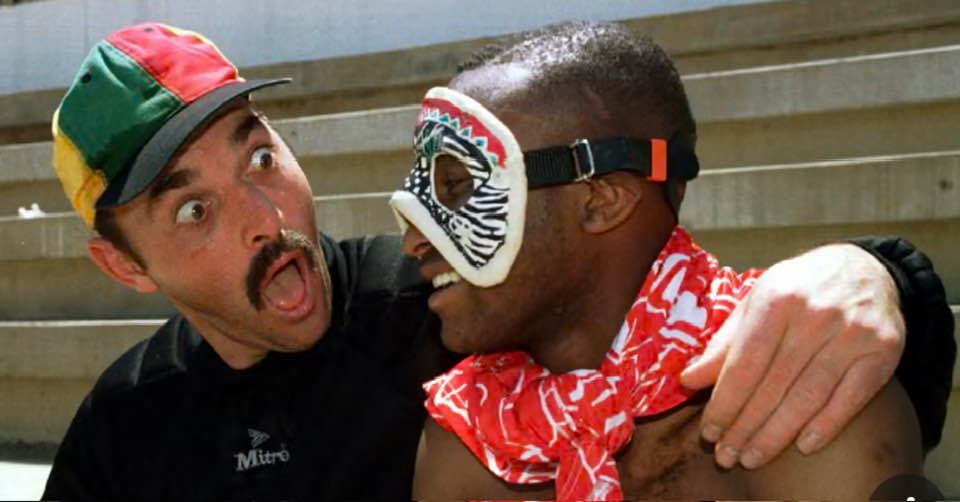
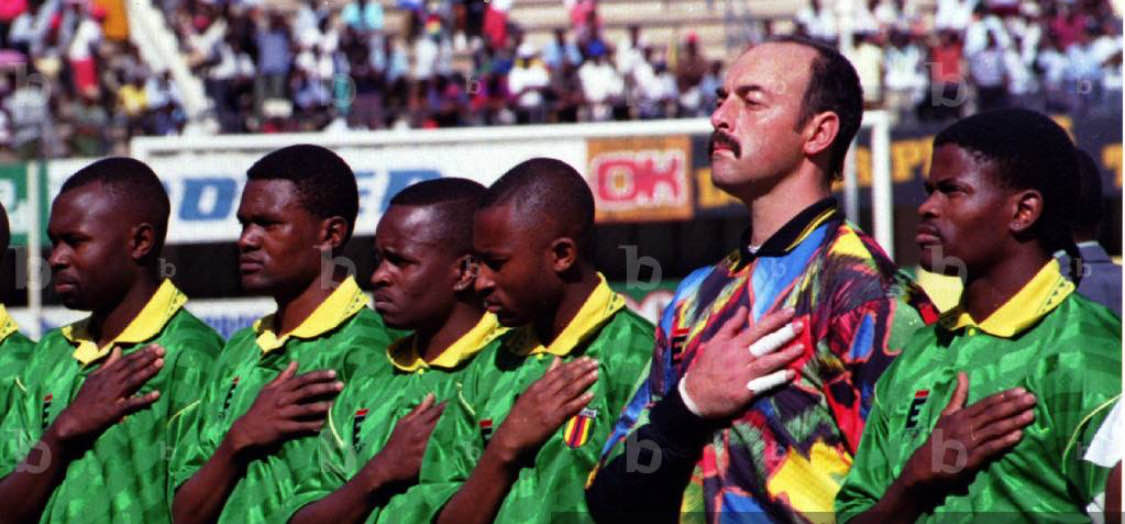
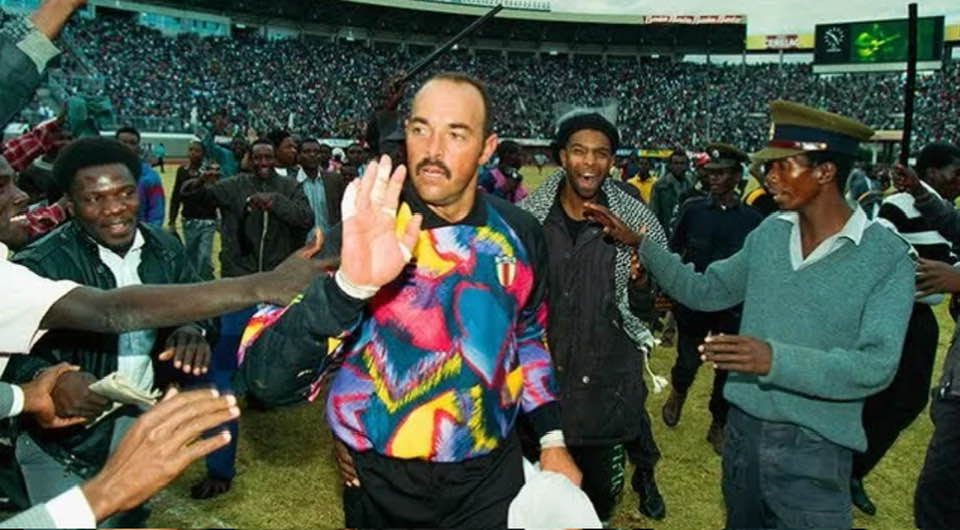
Bruce Grobbelaar was a talented multi-sport athlete as a teenager. He attended David Livingstone Primary School in Harare before moving onto Hamilton High School (Bulawayo). He was conscripted into National Service, spending eleven months on active service in the Rhodesia Regiment during the Rhodesian Bush War. Nicknamed “Jungleman,” he earned the nickname due to his service in this Rhodesian Bush War.
After joining Liverpool in 1981 Grobbelaar quickly adapted and he became a mainstay in his first five league campaigns at Anfield when Liverpool were champions four times and runners-up on the other occasion.
He was retained by three of Liverpool’s greatest managers; Paisley, Fagan and Dalglish, over a period of 13 years.
He endeared himself to the Anfield’s ‘religious’ fans with his unique goalkeeping style, which included eccentric showmanship, flamboyance, athleticism and an unflappable confidence.
In 14 years at the club, he won six league title medals, three FA Cup winner’s medal, three Football League Cup winner’s medals and a European Cup winner’s medal.
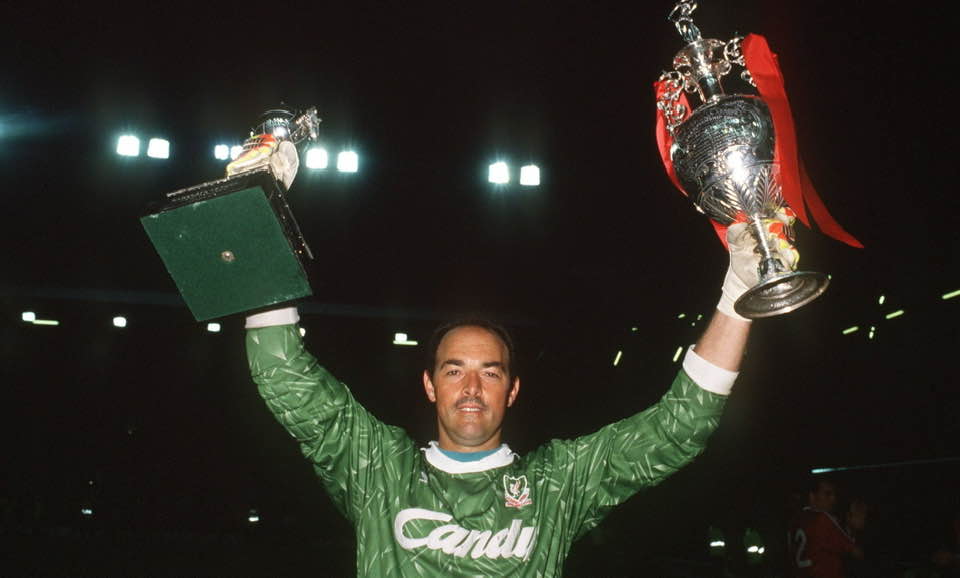
Bruce Grobbelaar made history when he became the first African player to feature in an European Cup final. In the 1984 Champions Cup final between Liverpool and a star-studded AS Roma side, Bruce stood between the posts to give a man of the match performance. The game finished 1–1 after extra time and went to a penalty shootout.
As the Italian 1982 World Cup star, Roma’s Bruno Conti prepared to take his kick, Grobbelaar in his trademark eccentric antics walked towards the goal smiling confidently at the cameras lined-up behind and went on to bite the back of the net, mimicking how Italians munch spaghetti when they are hungry, this mind game most likely had a psychological impact on Conti who then nervously sent his spot kick over the bar. Grobbelaar again wobbled his legs in mock terror to distract the focus of Francesco Graziani as he was about to take his own kick too and Graziani missed. Liverpool went on to win the shootout 4–2. This was certainly the highest point in his career.
The “Jungleman” made 628 appearances for Liverpool between 1981 to 1994, including 440 in the League and had 33 Caps for his country Zimbabwe between 1982 to 1998.
He later had stints with clubs like Stoke City, Southampton, Plymouth Argyl, Oxford United, Sheffield Wednesday, Oldham Athletic, Chesham United, Bury, Lincoln City and lastly Northwich Victoria in 1999 (all lower league clubs in England) before returning back home to South Africa to sign for Hellenic as a player-coach in 2002.
The Premier League is today the most-watched sports league in the world, broadcast in 212 territories to 643 million homes and a potential TV audience of 4.7 billion peoples.
There are 113 different nations that have been represented on the pitch in the Premier League era from 1992 till date, but 33 years ago, on the opening weekend of the competition, only 49 players in total came from outside the British Isles.
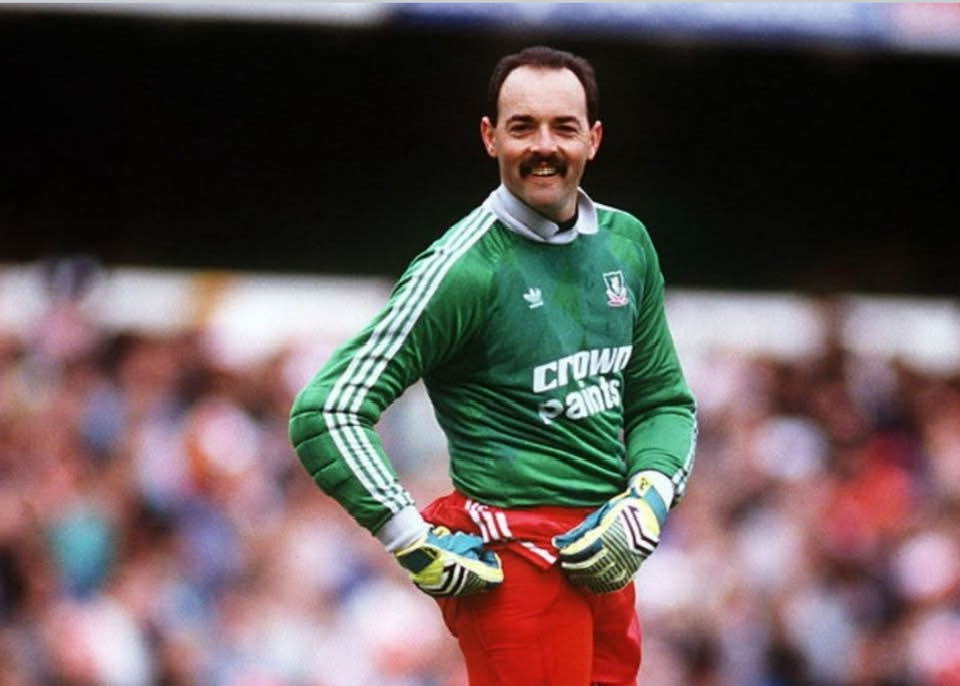
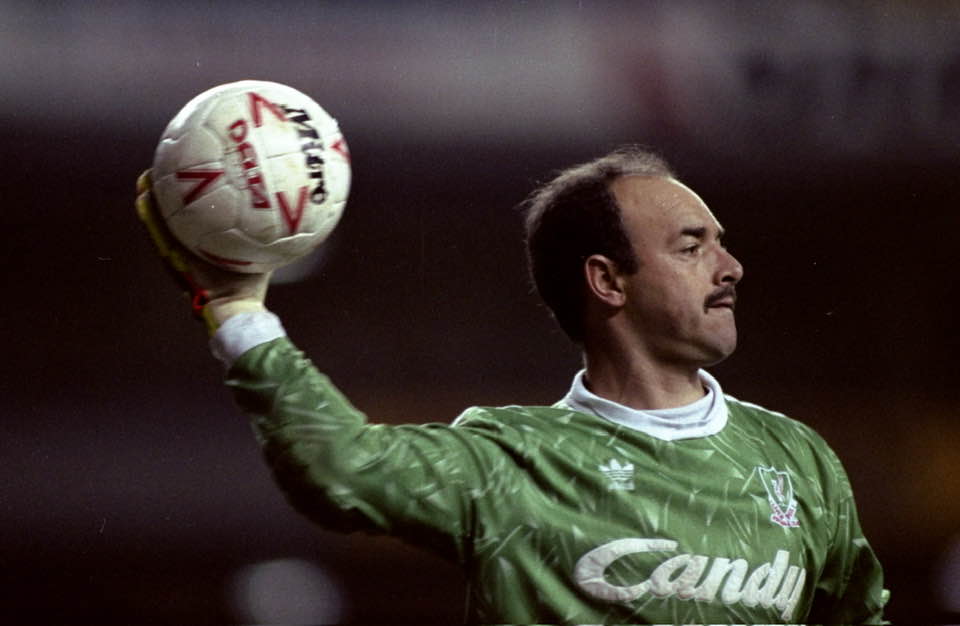
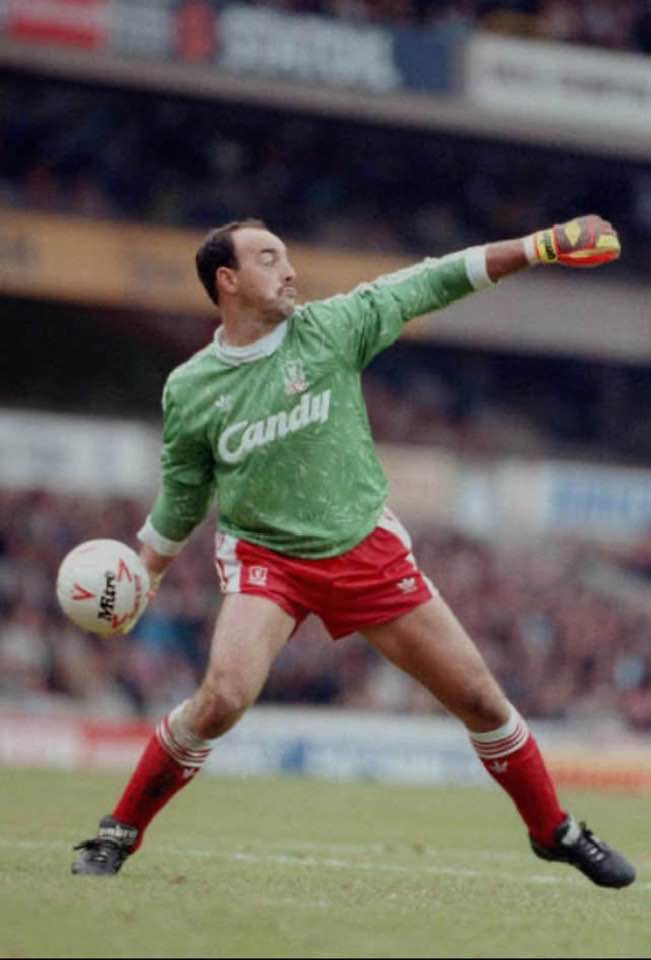
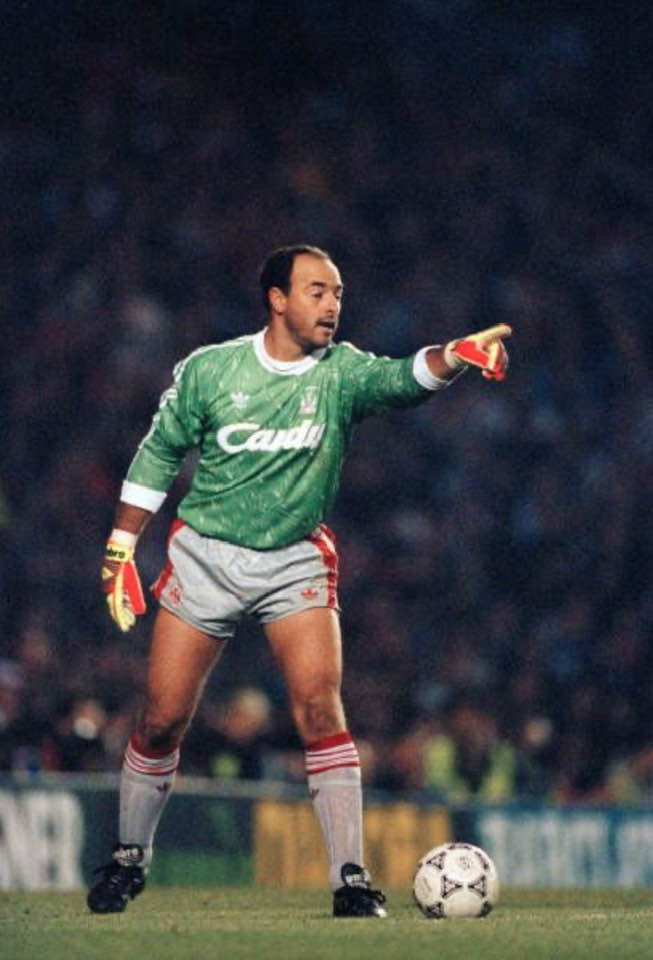
Seeing African players in Premier League action is now becoming a more common trend. Legends like Didier Drogba and Jay-Jay Okocha, Nwankwo Kanu, Samuel Eto’o, George Weah, Michael Essien, Tony Yeboah, Noureddine Naybet, Lauren Etame-Mayer, Nii Odartey Lamptey, Moussa Saib, Mustapha Hadji, Frederic Kanoute and many others came from the continent.
There is a very high number of African players right now in the Premier League, and all of them are representing the continent quite amazingly.
For instance, 2022-23 season had 46 African players registered on the Premier League’s official site. Only four of the 20 clubs in the English top-flight didn’t have a player from the continent that season.
In 2018-19, the three joint-top scorers in the league, each with 22 goals, were Mohammed Salah, Sadio Mané and Pierre-Emerick Aubameyang – from Egypt, Senegal and Gabon, respectively.
Nearly 400 players from 33 different African countries have so far featured in the English Premier League since its inception in 1992.
The Premier League has always been a league known for its diversity and inclusivity and African players have played a crucial role in its success over the years.
As the new EPL season kicks off today, we salute Grobbelaar, Ndlovu, and Ekoku — the fearless trailblazers who carried Africa’s hopes into England’s top flight. Their courage lit the path for today’s stars, and their legacy still roars every time an African shines on Premier League turf.
References:
- The premier league’s original foreign players by Adam Bate, Friday 9 September 2022
- Africa’s Growing Premier League Influence, by Martin Armstrong, Jan 27, 2022
- “History and time are key to power of football, says Premier League chief”. The Times. 3 July 2013.
- The number of African football players in European leagues tops 500 by Seth Onyango, May 2022.
- “First in the EPL, But Not Quite First on the Plane: The facts on Peter Ndlovu’s EPL accolade” SOURCE: ZBCNewsonline. 31 July, 2025
- “Trailblazers: Tracing Back the First Player From Each African Country to Play in the EPL” By Abdul Rashid Zakari – December 4, 2023
- “When Peter Ndlovu and Bruce Grobbelaar made Zimbabwe dare to dream” By Ian Hawkey. 19 Aug 2015
Please follow this link to subscribe to Moor Sportz’s YouTube channel https://youtube.com/@moorsportz?si=7HuwPPTLZF-k9m8y
You can navigate through this website to link up with all our social media handles including our Twitter and Instagram accounts too
Please note that we don’t have the copyright ownership of the photos here.
Story edited by Niyi Akinola


